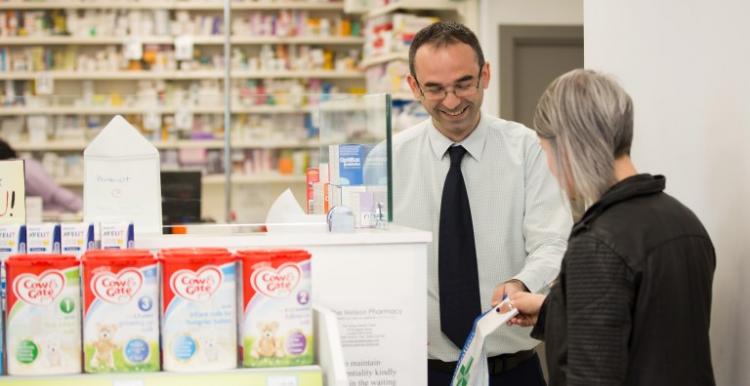Your experiences of getting prescription medication

In 2021/22, over a billion prescription items were dispensed in the community in England, up 2.58% on the previous year.
People rely on prescription medication to treat and manage their conditions and keep well. Yet, Healthwatch England's recent analysis of public feedback shows people are increasingly facing barriers to getting prescription medication.
Trends in feedback
Analysis of public feedback from local Healthwatch and from the Healthwatch England webform on pharmacies suggests people have been facing serious issues when trying to get prescription medication:
- Shortages of medication
- Delays in getting repeat prescriptions issued
- Shortages of staff
- Closed pharmacies.
Shortages of medication
Healthwatch increasingly hear that people can't always get their prescribed medication dispensed at their usual pharmacy. People must make repeat visits to their pharmacy until the medication is back in stock or make long trips to multiple pharmacies until they find one that stocks it.
People may also have to queue up for long periods to collect their medication. Those who need multiple medications on their prescription may have to make do with the items that pharmacists have in stock and get an IOU from the pharmacist for the medication not available.
We've heard about shortages of a wide range of medication, including hormone replacement therapy (known as HRT), medication for ADHD, painkillers, statins, heart conditions, high blood pressure and diabetes.
People with allergies to some of the ingredients in prescription medication report being unable to get medication without any allergens. People describe the stress and the extra effort they must make to get the medicine they need to stay well.
What patients from Brighton and Hove told us
We heard from patients:
- a complaint that a patient could not get a prescription from pharmacy and were told they needed to get it from her doctor;
- a patient who could not get a prescription due to production issues,
- a patient could not get antidepressant prescription in time,
- a patient where the pharmacist would not administer a small amount of an emergency prescription.
Shortages of medication is an issue that is not just reported by patients but also by pharmacists themselves.
According to surveys of pharmacy owners and staff undertaken by Community Pharmacy England, an organisation that represents community pharmacists, almost all owners reported being unable to source some medicines for patients. Nearly three-quarters reported longer dispensing times for prescriptions, while nearly nine in ten (87%) of pharmacy team members worried that people's health is being put at risk due to medicine supply issues.
Delays to getting repeat prescriptions
In addition to medication shortages, people report delays in getting repeat prescriptions issued. Repeat prescriptions allow people to request a further medicine supply without having to book another GP appointment and form around two-thirds of the prescriptions issued by doctors, pharmacists and dentists.
We've heard that delays in GPs authorising repeat prescription requests and ongoing difficulties in contacting GPs by phone to request a repeat prescription add to delays in getting prescription medication that might be in short supply.
Lack of staff or pharmacies closed
We also hear that people cannot get their prescriptions dispensed because no pharmacist is available or because local pharmacies have closed. As a result, people have to travel further to get their medication.
The primary care recovery plan includes a role for pharmacists being able to treat some common and straightforward conditions, including prescribing some medication. We will be undertaking further research on pharmacy's role in improving primary care later this year.
However, nothing in the primary care recovery plan tackles issues of shortage of supply of medication. Whilst the NHS long term workforce plan commits to expand training places for pharmacists by 29%, this won't happen until 2028/29.
At the same time, an NHS survey of pharmacy workforce shows a six per cent decrease in full-time equivalent posts in 2022 compared to 2021 and a 15% decline in the number of employed pharmacists.
What we'd like to see
Action on the workforce
We welcome that the recent NHS Long Term Workforce Plan commits to increasing the recruitment of pharmacists over the coming years. However, action on the workforce is required in the short term to help prevent temporary closures, especially at short notice. We must make the best use of the existing force we have. The workforce plan states that the Government will consult on how pharmacy technicians can work most effectively as part of more comprehensive primary care teams and across the NHS, for example, and we urge this consultation to be taken forward as soon as possible.
Tackle medicine shortages
Healthcare leaders should urgently consider how to tackle medicine shortages and set out how they will address them as part of the forthcoming winter planning.